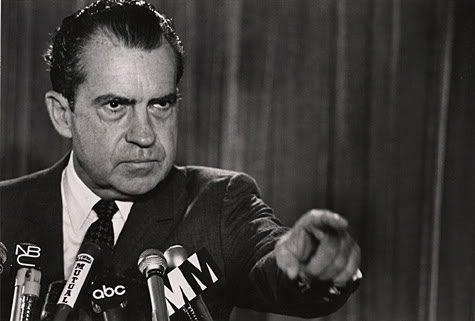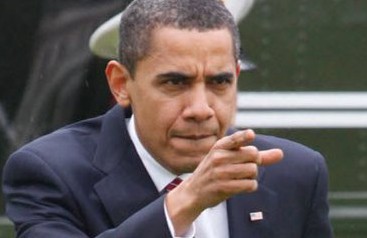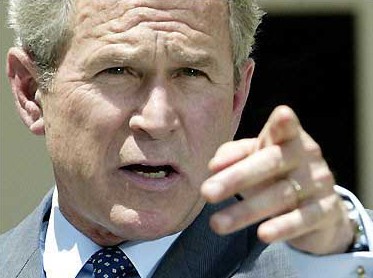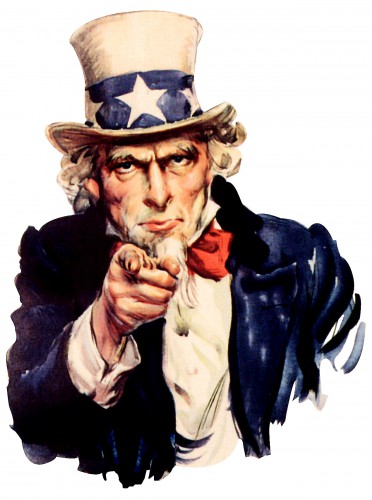
Don’t miss this seventh installment of author Ted Scofield’s series on everybody else’s biggest problem but your own. If you missed one or more of the previous installments, you can find them here. New installments will be posted every two weeks, on Tuesdays.
We’re searching for a collectively applicable definition of greed and, to help us do so, we’re investigating nine commonly cited concepts associated with the condition.
Last time we looked at relativity and learned that economically we compare ourselves to people just ahead of us in wealth and, comforting for our consciences, somebody always has more than we do, allowing us to pin the dreaded greed label on the other guy, and very rarely on ourselves.
Today we’ll examine another commonly cited concept associated with greed that also provides us with a convenient scapegoat, a way to identify – and vilify – that omnipresent other guy.
“I’m not greedy; I voted for [fill in the blank].” When I speak with individuals and groups about greed, I frequently hear this refrain.
How does it work? A couple of probing follow-up questions always yields the same results.
“I vote for the party that supports higher social welfare spending, which helps the poor people.”
“I vote for the party that supports lower taxes and job growth, which helps the poor people.”
Few of us believe we have the time, energy or money to help our neighbors in need, so we consciously or unconsciously abdicate the responsibility to government. Our political ideology gives us a way out, a way to step around the woman on the corner sleeping in the box, a way to avoid eye contact with the grizzled man at the end of the off-ramp. Our politics allows us to avoid feeling greedy.
Remarkably, it gets worse. Our politics gives us more than a self-serving way to abdicate our social responsibility. It also gives us a reinforcing sense of superiority. Certainly we are all convinced our side is better, right? The other guy who votes for [fill in the blank] is morally bankrupt, selfish, deluded and greedy. We are not!
 Frank Bruni recently wrote in The New York Times:
Frank Bruni recently wrote in The New York Times:
Democrats tell themselves that they have a ways to go before they sink as low as Republicans do. Republicans tell themselves that none of their machinations rival the venal braid of conflicting interests and overlapping agendas in the Clinton’s messy world.
As long as we can point our manicured finger at the other guy, we are absolved.
So, how has this approach worked for us as a people, as a nation? Government can build roads and wage war, but can it help the needy? Has government been successful with the social welfare responsibilities we have delegated to it?
Clearly the in vogue issue du jour is income inequality. To wit:
New York, unfortunately, is becoming to a large degree a city of two conspicuous classes, the rich and the poor. The great middle class, which constitutes the bone and sinew of the social structure, have been squeezed out, as it were, by the continually increasing pressure of the burden of the cost of living in the city.
Last month, in one of its 560 stories printed or posted on the topic in the past year, the Washington Post lamented “fresh evidence of stubborn income inequality.”
Stubborn, indeed. The quote above about New York could be from last Sunday’s op/ed pages. But it isn’t. The quote is from The History of New York, an 1884 book by Benson J. Lossing.
Two thousand years ago, Plutarch said “an imbalance between rich and poor is the oldest and most fatal ailment of all republics.” Two weeks ago, Pope Francis said “income inequality is the root of social ills.” Throughout human history, it certainly has defied political solutions.And, sure enough, our government has failed to mitigate income inequality, which has been steadily increasing since 1967, according to Census Bureau data. In fact, “F. Scott Fitzgerald would be jealous; the gap between rich and poor is greater now than it was in 1928.”
 What about very recent history? “No president has hammered the issue as emphatically as President Obama,” Bret Baier wrote in 2014.
What about very recent history? “No president has hammered the issue as emphatically as President Obama,” Bret Baier wrote in 2014.
But here’s the harsh reality: In 2012 the bottom 90% of wage-earners saw their share of total income earned by all people fall below 50% for the first time in recorded history. Income inequality in the USA has never been worse, and in allegedly “progressive” cities like San Francisco and New York, the disparity is far above the national average.
Income inequality is, of course, a ratio, and perhaps the poor are better off today, just the rich more so? Is that possible?
Unfortunately, despite trillions of dollars spent on anti-poverty measures, decades of data dash our hopes. In 1970, our nation’s poverty rate was 10.1%. In 1980, it was 10.3%. In 1989, when Ronald Reagan left office, also 10.3%. In 2001, 9.2%. When our current president took office, the 2009 poverty rate was 11.1%. Today it’s 11.6% and a recent USA Today headline read “More children living in poverty today than during recession.”
In 2008, 18% of children lived below the poverty line. Data from 2013 show 22%, a significant increase, and overall six million more Americans live in poverty today than when Barack Obama took office. An analysis by CNN concludes:
Nearly 50 million live in poverty in the United States – about one out of every six people – matching or beating some of the highest poverty rates since the 1960’s.
Income also disappoints. Median household income peaked in 1999, defying Bush’s tax cuts, Obama tax increases, and record-high deficit spending across-the-board.
 Specifically, in 1999 the median household earned $57,843 in 2015 dollars. Before the Great Recession, in 2007 the figure was $57,357. Today it’s $53,657 (and it fell from 2013 to 2014). In 2014, 47 million Americans could not afford to feed themselves without taxpayer assistance (SNAP). The number was 33 million in 2009 and 17 million in 2001.
Specifically, in 1999 the median household earned $57,843 in 2015 dollars. Before the Great Recession, in 2007 the figure was $57,357. Today it’s $53,657 (and it fell from 2013 to 2014). In 2014, 47 million Americans could not afford to feed themselves without taxpayer assistance (SNAP). The number was 33 million in 2009 and 17 million in 2001.
Let’s digress for a moment for a quick case study. On October 2, 2015, after calling for higher education spending, Princeton economist Alan S. Blinder wrote in The Wall Street Journal:
Politicians should also give priority to providing quality pre-K education for families who can’t afford it … Everyone wins … But you have to wait patiently: Most 3-year-olds won’t earn paychecks for more than 15 years.
Ironically, on that same day, we learned that we don’t have to wait patiently to see if “everyone wins.”
In 1997, the Canadian province of Quebec instituted a universal pre-K program, extending it to 2-year-olds in 1999 and to all children in 2000. Intended to increase mothers’ labor force participation rate, the universal childcare program did indeed accomplish that goal: “Lots of moms went to work, incomes and GDP rose,” noted Vox.com.
But did everyone win? According to a study co-authored by economist Jonathan Gruber and press-released on October 2, 2015, the Quebecois children lost:
We first confirm earlier findings showing reduced contemporaneous non-cognitive development following the program introduction in Quebec, with little impact on cognitive test scores. We then show these non-cognitive deficits persisted to school ages, and also that cohorts with increased child care access subsequently had worse health, lower life satisfaction, and higher crime rates later in life.

And the moms? Many did indeed join the workforce, but “families became more strained with the introduction of the program, as manifested in more hostile, less consistent parenting, worse adult mental health, and lower relationship satisfaction for mothers.”
Hopefully the bottom line is clear: Republican or Democrat, liberal or conservative, it does not matter: [Fill in the blank] is not reducing poverty, is not raising income, is not impacting inequality. [Fill in the blank] has failed.
How do we process all of this information? How do we cope with the fact that abdicating our responsibility to care for the needy has consistently failed?
Many of us fall back on our old standby; we blame the other guy. “I don’t think you can lay the blame for [higher poverty] at the feet of Obama. I think that the blame lies also with the U.S. Congress,” said Heather Bousley, chief economist of the Washington Center for Equitable Growth.
You’ve heard the excuses. I’ve uttered them innumerable times.
“Obstruction!”
“Gridlock!”
“If only the other guy would let my side do whatever it wanted, we’d be fine!”
Regardless of whether or not the excuses are valid, whether or not the other guy is thwarting your side’s magical political solutions, does it matter?
 Does blaming “obstruction” feed the hungry? Does bemoaning “gridlock” house the homeless?
Does blaming “obstruction” feed the hungry? Does bemoaning “gridlock” house the homeless?
I’d suggest that the presence of gridlock simply supports the opinion that abdicating our social responsibility to government has been, is, and will continue to fail our most vulnerable citizens.
Political polarization is certainly not going away. In a 2015 survey, Pew Research Center asked if government aid to the poor does more harm than good, or more good than harm. Among Democrats, 74% said government aid to the poor does more good than harm, with 21% saying the opposite. Among Republicans, 71% said more harm than good, with 24% disagreeing. Independents were deadlocked on the question: 46% said more harm, 46% said more good.
Extraordinary. We as a people are gridlocked on whether or not social welfare programs do more good than harm! Can we honestly expect our representative government to be any different from the people who elect it? And for how long can the gridlock/obstruction canard tread water? We’ve seen that poverty rates have varied little in fifty years. Will the elections of 2016 mark the grand turning point we’ve been waiting for, an actual “change” from past polarization and failure? I doubt even Pollyanna could muster such optimism.
But let’s not get distracted from our original goal, a collectively applicable definition of greed. Does politics help us? Can we agree as a people on a definition of greed based on political ideology or voting habits?
Not a chance.
And so our quest shall continue. Next time we’ll contemplate this deceptively alluring declaration: “Wanting more than you need is a simple definition of greed.”

COMMENTS
10 responses to “Everybody Else’s Biggest Problem, Pt 7: Let’s Blame the Other Guy!”
Leave a Reply














1st comment: Guilty as charged. I definitely feel superior to the morons who vote the opposite of how I do. And I know plenty of wealthy liberal New Yorkers who think voting for government spending absolves them of their responsibility to actually do something about poverty & homelessness. (And it’s tragically ironic that poverty & homelessness have gotten MUCH worse under our current joke of a mayor who is allegedly a bigtime “progressive.”)
2nd comment: The data presented is shocking. What are we spending trillions of dollars on? Poverty is worse today than in the 1960’s (or no better). Income inequality has never been worse (and that’s a long-term trend, not pinnable solely on Obama).
3rd comment: As I read the piece, I wanted a solution. Politics fails, yes. What do we do about it? But the answer is obvious. We don’t abdicate. We act ourselves.
I absolutely love this series! So much food for thought, and the more I read, the more fascinated I become.
I am often wary of data of the sort presented here, primarily because it is usually offered as support for one political agenda or another (at least when I see it – and I’ll admit that’s too often on facebook) . The statistics I read here feel true, just based on what I see in the community around me.
It would be interesting to learn if there is any kind of correlation between one’s attitude toward governmental responsibility to care for the poor and one’s inclination to take personal action; and whether that might be through financial support of organizations or an even more personal commitment to do something oneself.
Good stuff Ted…thought provoking. There’s something I’d like to toss into the ring here and I’d love your thoughts or reactions because I think it may represent, well, shall we say a “gap” in the way you’ve engaged the topic so far. And take this as intended – an honest but friendly prod from an old buddy who enjoys a turn around the Gordian knot as much as anyone 😉 First, I feel like a search for a common definition of greed that attempts to characterize it as a sort of elemental trait – as opposed to a human behavior – is likely doomed to turn in on itself in perpetuity. We struggle with the concept of greed cast in this way because greed is a behavior and, like most other behaviors, is – by definition – variable, temporal, relative. So the ineluctable answer to the question ‘what is greed?’ is – unsatisfyingly – “it depends.” I know. Not fun. But here’s what I think is really interesting: why define greed? The reality is, I’m not sure it matters. In fact, I’m pretty sure it doesn’t matter at all. The nucleus of any desire to define greed – as you courageously cop to – is the dark little corner of our collective psyche that wonders “Am I?” And when you tweak (or veil) the inquiry a bit and ask “is Bill Gates greedy? Is the homeless person hoarding bread crusts?” the relativity, variability and temporality come crashing in like a cranial singularity. Personally, as I read through your posts, I experienced the same kind of brain warp I felt when someone tried to explain to me that the laws of physics were potentially different on a planetary scale than on a molecular scale, that time and space could “bend” and that our universe, although infinite, is potentially but one in an infinite number of equally infinite universes that make up the “multiverse!” I’m sorry, but, huh? Laws are laws! Greed is greed! There can be only one! Right? I dunno. But consider this: if the core of the inquiry is to enable us to answer the shameful question “am i?” – what happens when you recognize (or accept) that the answer is just “yes.” Forget defining greed precisely. It’s a fool’s errand because no matter how you choose to define it – relative to who or when or what – the universal answer is “yes.” You, me, Bill Gates, Dave Zahl, the Dalai Lama, homeless people hoarding bread crusts – are we greedy? Yes. And no. Sometimes. At some point. Eventually. Whether in thought, word or deed – as they say – we are all at times greedy. And slothful, gluttonous, angry, lustful, envious and prideful. Or at a bare minimum, we have the basic human capacity to “be” all of these things at various times, from various perspectives and relative to various benchmarks. So if we look at any act or behavior undertaken by ANY of us, and recognize that the capacity for that very same act or behavior is hard-coded into ALL of us, where does that leave us? Hell if I know. But what I feel is that, viewed in this way, a precise definition of greed is utterly beside the point. The entire discussion boils down to the very fabric of human nature, the mysteries of human behavior and motivation – the evil and good and joy and pain that resides in every human heart. And trying to fold that fabric neatly, in a way that satisfies every scenario, is – well – a serious, spiritual and infinitely complex undertaking. So good on you my friend for trying. Keep it coming. By the way – Eugenie says hi 😉
Tom, I have long been fascinated by wealthy urban dwellers who seem to vote against their economic interests. Now that I’ve done this research, I have an explanation for it. I call it “urban guilt.”
Tom & Susan, the inequality/poverty/income/SNAP data is directly from, ironically, our government. I always seek out a primary source and do not rely on secondary commentary for the numbers. The fascinating Pew survey is from February 2015 and had a respectable sample size and low margin of error.
Susan, there is a book that addresses your correlation question, Who Really Cares: The Surprising Truth About Compassionate Conservatism by Arthur C. Brooks. It’s an interesting read. You can find it on Amazon.
Rob, your incredibly well-written comment is pretty much why I’ve undertaken this quest in the 1st place. You sum it up; it is in many ways a conclusion, albeit a problematic one. If we collectively agree we can not define greed, how can we address it? Does it even exist? Let’s look at anger, another behavior, another psychological condition. If a person berates his employees or blows up at strangers, he can choose to, or be ordered to, attend anger management classes. If he beats his wife, he may go to jail. We’ve collectively decided what constitutes “anger” and we have remedial ways to address it. The same applies to lust. If a woman commits adultery with 50 men a month, she can be diagnosed with sex addiction and seek treatment for it (covered by Blue Cross Blue Shield). If she’s paid for it, she goes to jail. Obese “gluttons” have any number of remedial options available to them; certainly we know obese when we see it. As a society, we don’t have a problem “defining” these three behaviors. But is there an objective level of greed that will get me called out by society and put in greed management classes? Do we talk to our friends about our problem with greed? “Why is greed different?” is the root of the series. Finally, if we can not define greed, how can we address it with political solutions? (Perhaps that’s a question for Bernie Sanders.) I could go on and on, but I’ll save it for the series.
People do not vary so much in their abilities. While equality of results is naive, equality of opportunity should create a more equal distribution of wealth than we are seeing. The fact is that our system makes success very easy for the wealthy, and exponentially harder for everyone else. Not only is this unfair, it means that those with the privilege of being able to think and work as visionaries will not necessarily be the most qualified, as they will be selected exclusively from a small class of people (the wealthy).
This post should be required reading for all Americans this election season! We all need to hear it, over and over again.
Great series!!